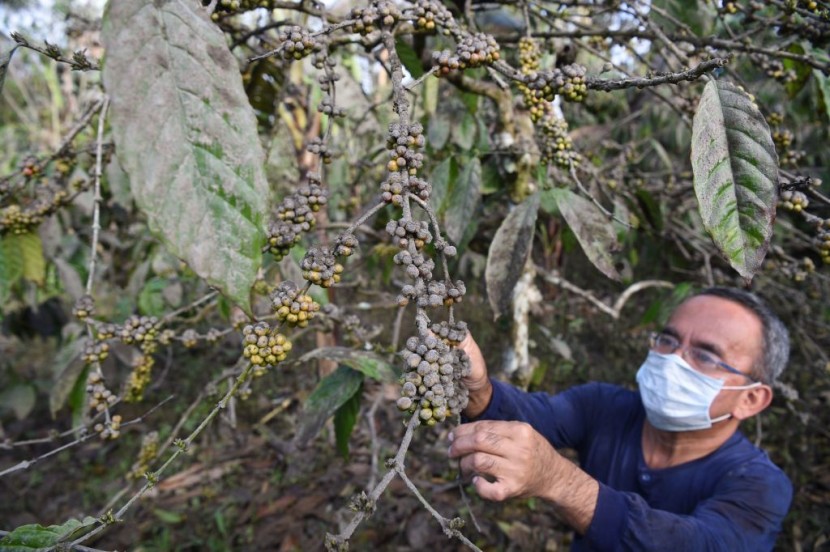It is no secret that the strongest and most flavorful coffee beans ever harvested are the ones that were grown in volcanic soil.
But a volcanologist made a full circle about volcanoes and coffee after revealing a secret that would brew stronger espressos.
In a study published by the journal Matter, a group of scientists, including Portland State University volcanologist Joshua Mendez Harper, said that adding a splash of water to coffee beans before grinding them would produce a more intense and consistent espresso. The study explained that electricity is generated every time coffee beans are ground, causing the particles to clump together and sometimes stick to the insides of the grinder. Adding moisture to the beans, the study explained, would produce less electricity, which was strangely dissimilar to the eruption of a volcano.
"During [an] eruption, magma breaks up into lots of little particles that then come out of the volcano in this big plume, and during that whole process, those particles are rubbing against each other and charging up to the point of producing lightning," Harper said in a press release detailing the findings.
"In a simplistic way, it's similar to grinding coffee, where you're taking these beans and reducing them to fine powder."

Water Makes Coffee Beans Stronger
Newsweek reported that the researchers believe that the findings could have hugely positive effects on the coffee industry, as the higher concentration of coffee, an additional 10% to 15%, could save money and improve quality.
While the researchers already knew that electricity was produced during the grinding process, little research has been done into how it affected the brewing process.
In order to reach their findings, senior author Christopher Hendon, a computational materials chemist at the University of Oregon, teamed up with volcanologists to compare the process with volcanic eruptions, thinking it would lead him to an answer.
The team first measured the amount of static electricity for coffee beans from different countries, which were also sorted according to roast color and moisture content. They also compared the amount of coarseness with the amount of electricity produced during grinding.
While they found no link between the electricity and different countries, they found links between the water content and the electricity.
"Moisture, whether it's residual moisture inside the roasted coffee or external moisture added during grinding, is what dictates the amount of charge that is formed during grinding," Hendon said in the press release.
"Water not only reduces static electricity and therefore reduces mess as you're grinding, but it can also make a major impact on the intensity of the beverage and, potentially, the ability to access higher concentrations of favorable flavors."
The researchers hope their study was just the beginning, as they would like to continue looking at more ways to scientifically explain how the perfect cup of coffee could be prepared.
"It's sort of like the start of a joke-a volcanologist and a coffee expert walk into a bar and then come out with a paper," Harper added. "These investigations may help resolve parallel issues in geophysics-whether it's landslides, volcanic eruptions, or how water percolates through soil."
Related Article : Coffee, Tea May Lower Risk of Type 2 Diabetes Mortality: Study
© 2026 HNGN, All rights reserved. Do not reproduce without permission.








